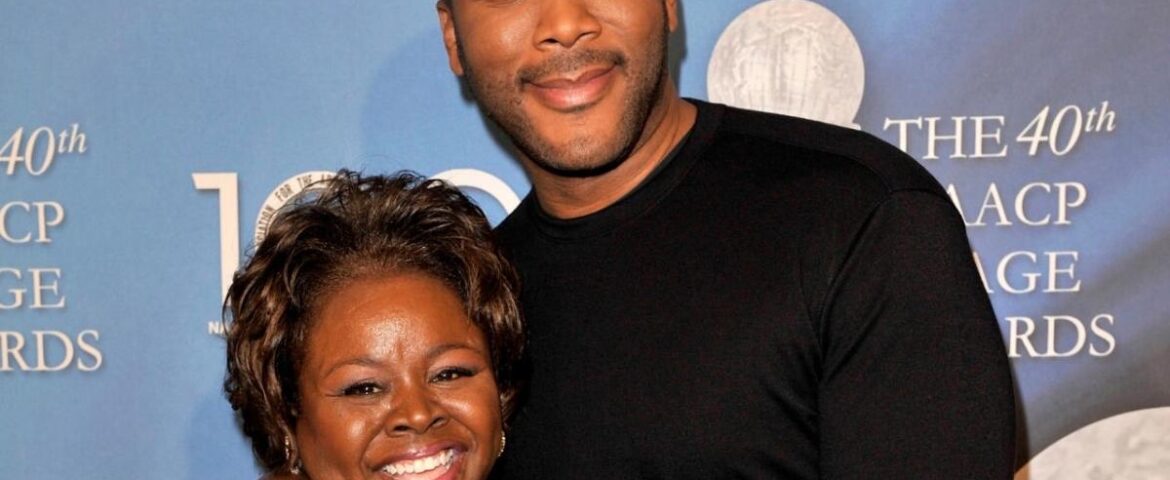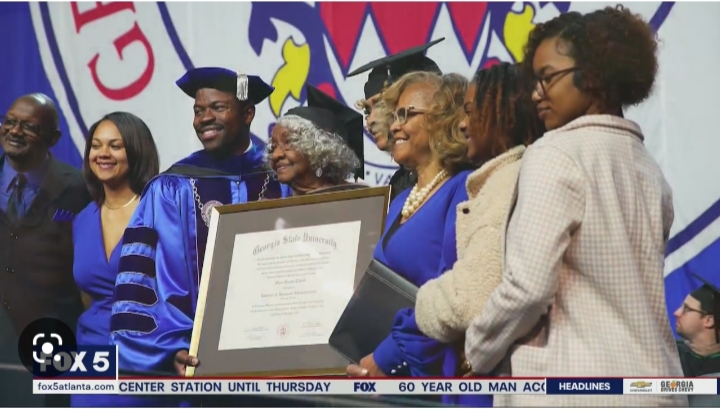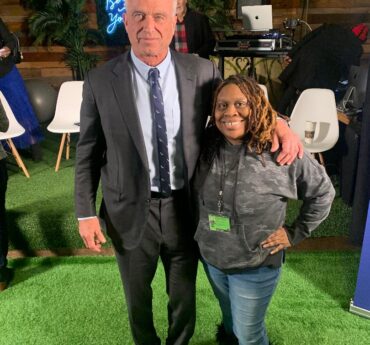After Rumors of Death, Tyler Perry Confirms Actress Cassi Davis is Alive and ‘Living Her Best Life’

After Rumors of Death, Tyler Perry Confirms Actress Cassi Davis is Alive and ‘Living Her Best Life’
“After I’ve gotten several calls from people giving me their condolences and I didn’t know what they were talking about, I was sent this article that’s going around. “I don’t know how she could have died and nobody told me or her. So I called her and asked her was she dead and she said hell no!
“Can whoever is responsible for this please stop you better be careful when you speak death over a child of God. “This woman is loved by millions and you’re hurting a lot of people.
“Cassi is fine living her best life with no worries, no cares, no social media, and no drama. She’s waiting to shoot the next season of House of Payne.” Perry recently showed his generosity when he offered financial relief to senior citizens in Atlanta who couldn’t afford to pay their property taxes on their homes.
A press release from the city of Atlanta announced that the studio owner would be donating close to $1 million to long-time senior residents to avoid displacement because of the rising costs of property values. For more breaking news, breaking artists tune in MON-FRI 6P ET on wqeb973.tv
Photo Credit: Getty Images
Lasting Legacy: Honoring three trailblazers who ended segregation at Georgia State

Lasting Legacy: Honoring three trailblazers who ended segregation at Georgia State
“I was a quiet little girl, but I always tried to be smart at the head of my class if I could be,” Ms. Myra Payne Elliot said. At 91 years young, her life is full of camera flashes, media interviews, and special appearances. She’ll admit though that she’s not a big fan of the spotlight.
To understand why she’s getting all the attention now, we have to go back to 1954. That’s when the U.S. Supreme Court broke historical ground with the Brown v. Board of Education decision that outlawed segregation in schools. Two years later, nine black applicants tested that ruling and applied to the Georgia State College of Business Administration, known today as Georgia State University.
“I always wanted to go to college. I guess it wasn’t meant for me to go,” Elliot laments.
Her hopes, along the other applicants, were crushed when the school denied them admission, but Elliott and two other brave women, Iris Mae Welch and Barbara Pace Hunt, wouldn’t take no for an answer. With help of the NAACP its Atlanta chapter, they sued the school despite threats from the Ku Klux Klan.
“At the time that I did it I had no idea how far-reaching it would go,” Elliott admits. In 1959, the Hunt v. Arnold case became the NAACP’s first federal court victory against segregated education in Georgia, but their fight was far from over.
“They were serious students. They were determined to obtain a college degree,” says author Dr. Maurice Daniels.
He details their struggle in his book, “Ground Crew: The Fight to End Segregation at Georgia State.”
It chronicles the policies created by the state legislature and Board of Regents to keep black students out, including certificates of good moral character and a tuition program designed to shuttle black students to out-of-state schools. Yet, nothing would erode their resolve.
“In addition to that determination they were surrounded by a progressive black community that was interested in overturning racial discrimination and racial segregation,” Daniels said. Fast-forward to 1962. Georgia State desegregates, but none of the three women who fought so hard to go there would get the chance to attend.
It’s a touchy subject that Elliott didn’t talk about much with her family, but when they found out they were overwhelmed with pride.
Elliott’s daughters, June Harland and Jocelyn Gleaton, are two of those people.
“I was overwhelmed with all kinds of emotion because it hit me. It took me a moment to take it all in,” Harland says.
“I’m just so thankful that she is here to receive it all and to still [be] in her right mind to know that her sacrifices that she made has came to light,” Gleaton admits. During the university’s 2022 fall commencement ceremony, the school honored the three trailblazers with honorary degrees. Elliott is the only surviving plaintiff who lived to see the day. She finally got her moment in the spotlight that was denied all those years ago. She now has four grandchildren and five great-grandchildren, one of whom attends Georgia State. Jordan Holman is a freshman.
“It’s way bigger than what I thought. I go here now. People of all races come here,” Holman said.
That lasting legacy now illuminates the bright futures for thousands of African-American students and other minorities who walk the halls of Georgia State. “It was selfish on my part. I was doing what I wanted to do. It just blossomed out, and I’m glad it did. Maybe that’s what brought us all together,” Elliott says.
The Hunt v. Arnold case was also used as a precedent in legal cases that went on to desegregate the University of Georgia and the University of Mississippi. Georgia State’s student population is now over 40% black. It’s also the leader among nonprofit or public universities for conferring bachelor’s degrees to African American students.
Our Address
- 3060 Pharr Ct N Northwest Suite C5, Atlanta, GA 30305
- 3060 Pharr Ct N Northwest Suite C5, Atlanta, GA 30305
- 470-399-7973
- WQEB 97.3 Radio Cafe






